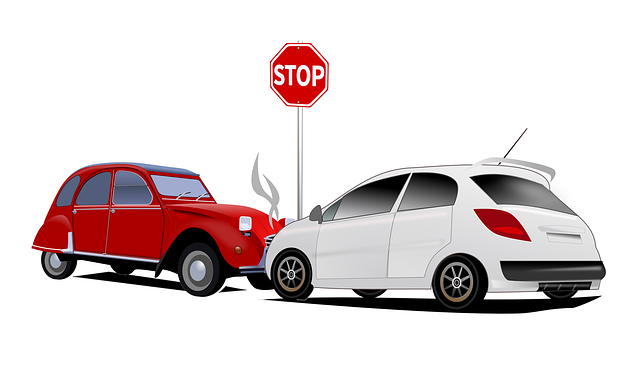Full coverage car insurance extends beyond basic liability, offering robust vehicle protection plans that safeguard against a wide range of risks including theft, vandalism, natural disasters, and fire. This comprehensive coverage also includes glass coverage for windshield or window repairs and roadside assistance for issues like flat tires, dead batteries, or lockouts. A key aspect to consider in full coverage is the auto insurance deductible, which is the amount you pay out-of-pocket before your policy's benefits kick in. Higher deductibles can lower your monthly premiums but require more out-of-pocket spending during claims. Conversely, selecting a lower deductible increases coverage but at a higher cost. Drivers should choose their deductible carefully based on their financial situation and potential repair expenses to ensure they are neither underinsured nor financially burdened by unexpected vehicle incidents. By understanding the balance between deductibles and coverage, drivers can tailor their full coverage car insurance to meet their specific needs and risk tolerance, ultimately securing their investment against a multitude of vehicular risks.
When it comes to safeguarding your automobile against a multitude of risks, full coverage car insurance stands out as the robust vehicle protection plan you need. Unlike basic liability insurance, comprehensive auto insurance offers a shield against non-collision perils such as theft, vandalism, and natural disasters. It also encompasses glass coverage insurance for those unexpected cracks in your windshield or window. Moreover, many comprehensive policies include roadside assistance, proving indispensable during vehicular breakdowns. Understanding the nuances of auto insurance deductibles is crucial to maximizing the benefits of your full coverage plan. This article delves into these aspects, ensuring you’re well-informed to make prudent decisions about your comprehensive accident coverage and additional perks.
- Understanding Full Coverage Car Insurance: Beyond Basic Liability
- Navigating Auto Insurance Deductibles and Their Impact on Vehicle Protection Plans
- The Scope of Comprehensive Accident Coverage and Additional Benefits Like Glass Coverage and Roadside Assistance
Understanding Full Coverage Car Insurance: Beyond Basic Liability
When considering your auto insurance options, it’s crucial to understand the differences between basic liability and full coverage car insurance. Basic liability coverage is mandatory in most states and covers damage or injury you cause to others. However, it does not protect your own vehicle. Full coverage car insurance extends beyond these limits, offering a comprehensive suite of protections that cater to a wide range of scenarios. This robust vehicle protection plan includes accident coverage, which safeguards against financial loss from accidents involving your car. Additionally, full coverage encompasses auto insurance deductibles, which are the fixed amounts you pay out-of-pocket before your insurance kicks in for covered claims. This means that if your vehicle suffers damages from non-collision events like theft, vandalism, natural disasters, or fire, your full coverage policy will help cover repairs or replacement costs, minus your deductible. Furthermore, glass coverage insurance is typically included within full coverage plans, ensuring that unexpected breakages of windshields or windows are promptly addressed without causing undue financial strain.
Beyond the physical protection of your vehicle, comprehensive plans often provide additional benefits such as roadside assistance. This service offers peace of mind by offering support during car troubles like flat tires, dead batteries, or lockouts, ensuring that you’re not left stranded on the side of the road. By choosing full coverage car insurance, drivers can rest assured that their investment is protected against a multitude of potential risks, providing them with a more secure and stress-free driving experience. This holistic approach to auto insurance makes full coverage an invaluable asset for any vehicle owner who seeks to mitigate unforeseen expenses related to vehicle damage or incidents on the road.
Navigating Auto Insurance Deductibles and Their Impact on Vehicle Protection Plans
When considering a full coverage car insurance plan, understanding auto insurance deductibles is crucial for drivers to assess the extent of their vehicle’s protection. A deductible represents the amount an insured individual agrees to pay out-of-pocket before the insurance company covers the remaining costs. Choosing a higher deductible can lead to lower monthly premiums, effectively balancing the risk and cost of insurance. Conversely, selecting a lower deductible means the policyholder will pay less out-of-pocket in the event of a claim but will typically face higher premiums. It’s important for drivers to carefully weigh their financial situation against potential repair costs to determine an appropriate deductible that ensures vehicle protection without causing undue financial strain.
Vehicle protection plans with lower deductibles tend to offer more comprehensive accident coverage, which can be particularly advantageous in the event of significant damage or total loss. On the other hand, drivers with higher deductibles are more invested in the day-to-day maintenance and repair decisions, potentially encouraging safer driving habits. Regardless of the deductible chosen, full coverage car insurance provides a robust safety net against various risks, including those from non-collision incidents like theft, vandalism, natural disasters, and fire. This comprehensive coverage extends beyond the essentials to include glass coverage insurance, ensuring drivers are not left vulnerable to costly windshield or window repairs. Additionally, many policies bundle roadside assistance as part of their full coverage package, offering peace of mind against unexpected vehicle breakdowns. Understanding the interplay between deductibles and comprehensive coverage ensures that drivers can make informed decisions tailored to their specific needs and risk tolerance when selecting a vehicle protection plan.
The Scope of Comprehensive Accident Coverage and Additional Benefits Like Glass Coverage and Roadside Assistance
When considering a robust vehicle protection plan, full coverage car insurance stands out as a comprehensive accident coverage option that extends beyond the confines of liability-only policies. This encompassing form of auto insurance deductibles ensures that your vehicle is protected against a multitude of non-collision incidents. It covers repair costs for damages inflicted by acts such as theft, vandalism, or natural disasters like floods or fires. This peace-of-mind coverage also includes glass coverage insurance, which is invaluable for unexpected breakages of windshields and windows, potentially saving drivers from hefty out-of-pocket expenses when these common occurrences happen.
Furthermore, many comprehensive auto insurance plans are designed to go above and beyond by incorporating additional benefits like roadside assistance. This service is a lifesaver during unexpected vehicle breakdowns, offering on-the-spot help such as towing services, battery jumps, flat tire changes, and even delivery of fuel or fluids should your vehicle leave you stranded. With the inclusion of these features in a full coverage car insurance package, drivers can be confident that they are well-equipped to handle various scenarios that could otherwise result in costly repairs or a significant inconvenience. This makes comprehensive auto insurance deductibles a prudent choice for those looking to safeguard their vehicles against a wide array of potential risks and provide a more secure driving experience.
In conclusion, full coverage car insurance serves as a robust vehicle protection plan that extends beyond the basic liability coverage, offering accident coverage and additional benefits such as glass coverage and roadside assistance. Understanding the nuances of auto insurance deductibles is crucial for drivers to optimize their policy’s financial impact. By carefully considering comprehensive auto insurance options, individuals can ensure they are adequately protected against a wide range of unforeseen events that may affect their vehicle. This not only provides peace of mind but also ensures that in the event of non-collision incidents like theft, vandalism, or natural disasters, drivers have the support needed to return to the road swiftly and securely.



